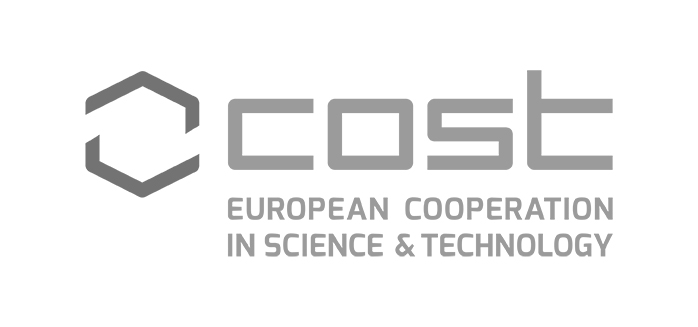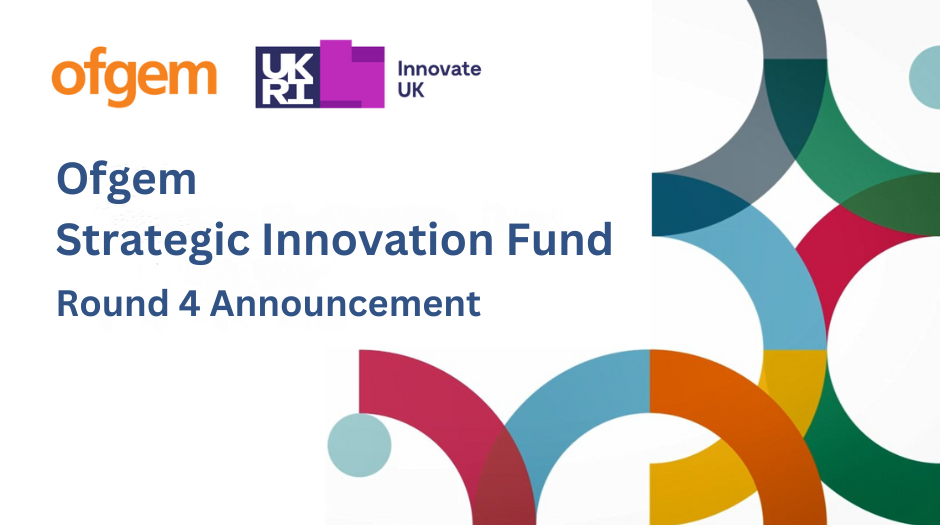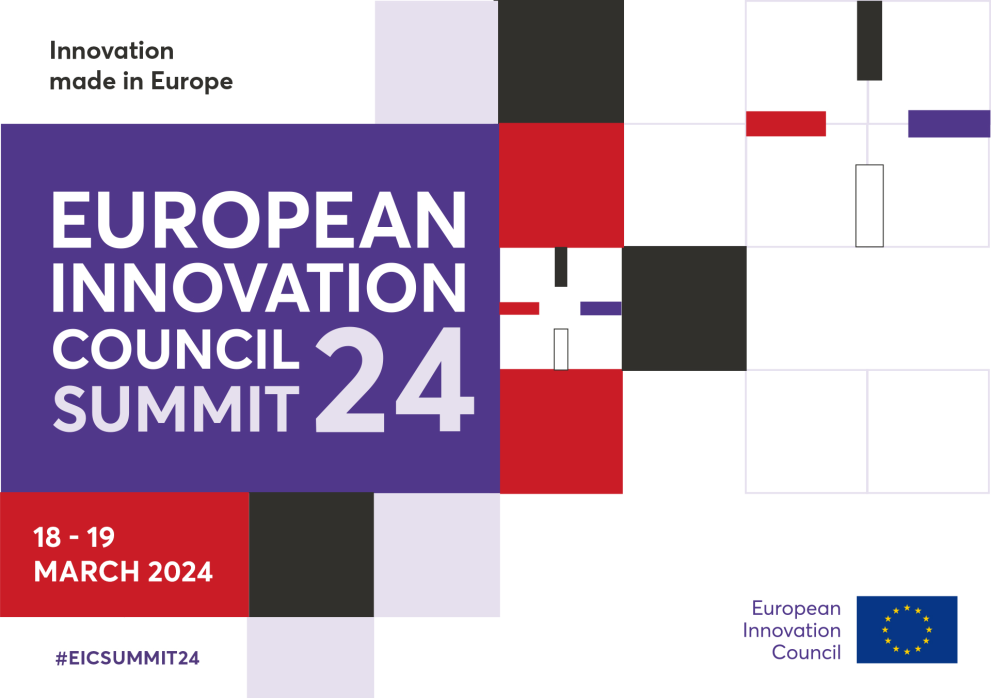Innovate UK’s Funding Slowdown in 2025
As we approach the midpoint of 2025, the UK’s innovation ecosystem finds itself in a period of notable transition, and has done for a few months now! Innovate UK, the nation's principal innovation agency, has launched significantly fewer funding competitions this year compared to previous years. This marked reduction has raised concerns across the innovation landscape, prompting many to question what is driving the slowdown.
From my perspective as Director of RedKnight Consultancy Ltd, the picture is more complex than any one factor. While headline-grabbing changes, such as the pausing of the Smart Grant programme have attracted attention, the root cause of the slowdown is likely broader and more political in nature. In this article I examine the intersecting structural, strategic and political developments shaping the 2025 funding landscape, and offer guidance on what innovators should expect next.
Leadership Changes and Strategic Realignment
One of the clearest changes to Innovate UK this year has been the appointment of Tom Adeyoola as its new Executive Chair, succeeding interim chair Dr. Stella Peace. Adeyoola, an experienced tech entrepreneur and founder of Metail, brings fresh thinking to Innovate UK at a time of strategic realignment. He has indicated his focus will be on simplifying delivery, supporting commercialisation, and scaling impactful innovations.
While his arrival is welcome and timely, it follows a long leadership vacuum. The agency’s previous Chief Executive, Dr. Indro Mukerjee, announced his departure in early 2024. For over a year, Innovate UK was without permanent leadership, a period during which senior planning and programme development was, unsurprisingly, affected. Speculation about further structural reforms, including a potential shift away from UKRI oversight, has only added to the uncertainty.
Such transitions, while necessary for long-term evolution, often cause temporary disruptions. It’s likely that a “wait and see” mentality pervaded much of Innovate UK’s internal operations during this period, which may help explain why fewer competitions launched in early 2025.
Budget Delays and Political Caution
In addition to leadership changes, 2025 opened under the shadow of delayed public funding announcements. UKRI’s overall budget, which includes Innovate UK’s core funding, was not confirmed until well into the new fiscal year. With the newly elected Chancellor, Rachel Reeves, instructing departments to find 5% "efficiency savings," concerns mounted that innovation spending could face cuts.
While the government ultimately reaffirmed its commitment to protect record levels of R&D investment, the months of uncertainty had already forced Innovate UK to adopt a cautious stance. In the absence of budget clarity, launching large-scale competitions would have been imprudent.
Crucially, this budget uncertainty did not occur in a vacuum. It coincided with the Labour government’s broader emphasis on fiscal discipline and "value for money" across Whitehall. As a result, agencies like Innovate UK have been pushed to prioritise demonstrable economic impact, with funding steered increasingly towards mission-led challenges and commercial outcomes.
More Than Just Smart Grants
Much of the discourse around the slowdown in Innovate UK activity has centred on the pausing of the Smart Grant programme, a competition that previously ran multiple times per year and accepted proposals from all sectors. Its suspension in January 2025, following plummeting success rates (as low as 2.8%), sparked frustration across the SME landscape.
However, Smart is (or was) just one competition. And while its pause is significant, it does not explain the broader absence of activity across the funding landscape. In fact, many other well-known programmes have also failed to materialise this year.
For example, the Biomedical Catalyst (BMC), a joint programme with the Medical Research Council (MRC) that funds early and late-stage health innovations, has yet to run a 2025 round. This is concerning given its importance to UK life sciences. Other expected competitions, such as the Digital Security by Design (DSbD) programme, Energy Catalyst, and sector-specific open calls under the Innovate UK Net Zero and Transformative Technologies portfolios, have also been noticeably quiet.
This suggests that what we are seeing is not just an operational reset, but a deeper political or strategic pivot. The government’s shift towards targeted mission delivery, including net zero, AI, and health, appears to be driving a reprioritisation of which competitions run and when. The result is fewer, more selective funding opportunities.
Targeted competitions still active, but narrower in scope
Despite the broader slowdown, Innovate UK has continued to deliver select competitions in 2025, albeit with a much narrower focus. Notable examples include:
- Ofgem Strategic Innovation Fund (SIF) - Round 4, offering up to £30 million for energy networks to develop net-zero enabling innovations.
- First of a Kind (FOAK) 2025, supporting innovations in the rail industry through the Department for Transport.
- Contracts for Innovation, (formerly known as the Small Business Research Initiative or SBRI) help public sector organisations to solve complex challenges by running a competitive funding opportunity, to develop and adopt new solutions and technologies.
- Farming Futures R&D Fund, which is part of Defra’s Farming Innovation Programme, delivered in partnership with Innovate UK.
- Innovation Loans, which have continued to operate in 2025, offering debt-based support for later-stage commercialisation.
These initiatives indicate that funding is still flowing, but only in highly strategic areas, often aligned with regulatory partners or central departments. This shift brings opportunity and risk. The opportunity lies in tackling national priorities with scale. The risk is projects that don’t fit these missions, but are nonetheless high potential, may fall between the cracks.
SMEs in limbo, waiting for the next model
The gap left by paused competitions, like the Smart Grant and BMC is being most keenly felt by SMEs. With the Smart Grant shelved and few alternatives available, many early-stage businesses are unsure where to turn.
Innovate UK has acknowledged this and is expected to launch a new SME support model later in 2025. It had been suggested around spring time, and yet here we are, fast approaching summer. Whenever it is launched, the new model will reportedly be designed to address criticisms of previous schemes, including administrative burden, low success rates, and misalignment with business needs.
Until that replacement launches, however, the funding landscape for SMEs remains fragmented. Some may turn to investor partnerships or seek opportunities in Horizon Europe or regional funds, but these alternatives pose their own unique challenges. Regional funding can (and often is) tremendously bureaucratic and administratively heavily for relatively small amounts of money. Horizon Europe on the other hand, whilst accessible again to UK participation following its agreed association with the programme, provides additional challenges and competition against the leading deep tech entrepreneurs across the continent.
Political Underpinnings and a New Industrial Vision
Looking at the bigger picture, Innovate UK’s 2025 activity must be viewed in the context of a broader industrial policy rethink. The new government has placed innovation at the heart of its economic strategy, but it wants greater direction, accountability and returns.
Innovate UK, as the delivery arm for that vision, is clearly being reshaped to match. The signs are clear: mission-led investment, productivity metrics, streamlined governance, and a greater role for blended finance (e.g. loans, equity, partnerships).
This approach has merit, particularly if it addresses the UK’s persistent scale-up challenge, but it requires a delicate balance. Pulling too far towards strategic mission’s risks alienating the diverse base of inventors, researchers and SMEs that make up the innovation ecosystem.
Outlook and Recommendations
As we move into the second half of 2025, we are likely to see a gradual return to activity, albeit under a reshaped framework. Key recommendations for stakeholders include:
- Stay Informed: Watch for announcements on the SME replacement scheme, as well as thematic competitions. Always prioritise a thematic opportunity ahead of an open competition.
- Adapt Your Strategy: Align proposals with national missions (e.g., Net Zero, health, AI) to increase funding chances.
- Explore Alternatives: Investigate other sources of public funding (e.g., Horizon Europe), regional growth funds, or blended finance models. Use RedKnight's Grant Matcher tool as a starting point.
- Plan for the Long Game: Use this lull to build partnerships, strengthen your value proposition, and develop robust R&D and commercialisation strategies.
The 2025 slowdown in Innovate UK funding is real, but it’s not just about Smart Grants. A combination of political change, fiscal caution, leadership transitions, and strategic refocusing has converged to create a temporary yet significant shift in the innovation funding landscape.
RedKnight believes the fundamentals remain strong. The UK is still committed to R&D investment and Innovate UK, under new leadership with Tom Adeyoola, can recalibrate support in a way that works better for SMEs, industry, and public value.
However, what’s needed now is transparency, timeliness, and a clear roadmap. If delivered, the ecosystem can recover from this pause stronger, more focused, and better aligned with the challenges and opportunities ahead.
Innovation in the UK isn’t down and out, but it is in transition. And as always, RedKnight is here to help innovators navigate what comes next.
Media Cymru's Scale Up Round 2 Funding Competition
The media landscape in Wales is poised for transformational change, and Media Cymru, a dynamic consortium of 22 partner organisations led by Cardiff University, is at the heart of this shift. As part of its ambitious five-year programme, Media Cymru has launched the Scale Up Round 2 funding competition, with support from Innovate UK and the UKRI Strength in Places Fund. With up to £700,000 available to be invested in research and development (R&D) projects, this competition is designed to place the Cardiff Capital Region firmly on the global media stage.
The Vision Behind Media Cymru
Media Cymru is committed to turning the Cardiff Capital Region into a global hub for media production and innovation. However, this transformation is not merely about boosting production capacity. The initiative prioritizes green and fair economic growth, which means creating a sustainable and inclusive media ecosystem where innovation is at the forefront.
The Media Cymru programme revolves around four strategic pillars:
- Green – Reducing the environmental impact of the media sector.
- Fair – Building a diverse, equal, and inclusive sector.
- Global – Expanding international collaborations and partnerships.
- Growth – Fostering economic growth and productivity through R&D and innovation.
Each project funded through this competition is expected to align with at least one of these pillars, ensuring that funded innovations contribute not only to the advancement of the Welsh media industry but also to the wider societal and environmental goals.
Scale Up Round 2: What’s the Opportunity?
Media Cymru: Scale Up Round 2 offers Welsh media companies the chance to secure significant funding for projects with the potential to scale, innovate, and compete on a global stage. The competition will invest in innovation-driven products, services, and experiences that have the ability to transform the media landscape, both locally and internationally.
Key Details:
- Grant funding range: £100,000 to £250,000 per project.
- Project duration: Up to 12 months.
- Deadline: The competition closes at 11am UK time on the 4th December 2024.
- Project start date: Must not begin before 1st April 2025 and should conclude by 30th April 2026.
- Eligibility criteria: Projects must focus on the media sector and demonstrate a tangible economic benefit to the Cardiff Capital Region.
Importantly, applicants must be prepared for a competitive process, as the funding limit means not all high-scoring proposals will necessarily be funded.
What Makes a Winning Proposal?
Success in this competition hinges on a company’s ability to present a project that meets the specific requirements of the competition while standing out in terms of innovation and scalability.
Here’s what the competition is looking for in a winning proposal:
- Innovation-Driven Solutions: Your project must aim to solve a key challenge or seize an opportunity within the Welsh media industry. Whether it’s improving media production processes, creating innovative content platforms, or addressing challenges related to digital consumption, the project should be original and impactful.
- Proven Feasibility: Ideas are not enough on their own. You need to demonstrate the feasibility of your innovation. This means that the technology or solution you propose must have a sound basis for development and implementation, supported by clear evidence or research.
- Economic Impact: A core goal of this competition is to drive economic growth in the Cardiff Capital Region. Successful applicants will need to demonstrate how their innovation will contribute to the local economy by creating jobs, increasing productivity, or attracting additional investment.
- Rapid Commercialisation: The competition is not just about ideas; it’s about turning those ideas into tangible products and services that can be rapidly commercialised. Your proposal should include a clear commercialisation strategy, detailing how your innovation will be brought to market quickly and effectively after the project’s completion.
- Knowledge Sharing: Collaboration and knowledge-sharing are fundamental to Media Cymru’s vision. Applicants are expected to actively share knowledge and project outputs with the broader media community, fostering a culture of innovation across the region.
- Alignment with Strategic Pillars: Every project must align with one or more of Media Cymru’s strategic pillars (Green, Fair, Global, Growth). This ensures that your innovation contributes to the overarching goals of the programme, whether that’s through promoting sustainability, increasing diversity, driving international partnerships, or enhancing regional economic growth.
Why Should Welsh Media Companies Apply?
The Media Cymru Scale Up Round 2 competition presents a unique opportunity for media companies in the Cardiff Capital Region to receive significant financial backing for their most ambitious and innovative projects. However, the benefits extend far beyond funding.
- Enhanced Visibility and Prestige
Being selected for funding through this competition positions your company as an industry leader. It showcases your commitment to innovation and your ability to develop solutions that can compete on the global stage. This visibility can lead to further collaborations, partnerships, and investment opportunities. - Global Reach
Media Cymru’s commitment to international collaboration means that companies funded through this programme will have the chance to build relationships with global partners, expanding their reach and influence beyond the Welsh and UK markets. - Driving Positive Change
By aligning your project with Media Cymru’s strategic pillars, you’re contributing to a more sustainable, diverse, and innovative media sector. Whether it’s reducing the carbon footprint of media production or creating a more inclusive industry, your project can be part of shaping the future of media in Wales and beyond. - Economic Impact
Perhaps most importantly, successful projects will play a pivotal role in driving economic growth in the Cardiff Capital Region. By creating new jobs, attracting investment, and increasing productivity, your project can have a lasting positive impact on the region’s economy.
COST Actions: A Catalyst for Research Collaboration
The development and growth of research across Europe have been significantly shaped by initiatives that foster collaboration, networking, and knowledge-sharing among scientists and researchers. Among these initiatives, COST Actions stand out as a unique and impactful program that bridges the gap between different research communities, disciplines, and countries. COST Actions are not just about research funding; they represent a broader, more integrated approach to scientific collaboration that can lead to ground breaking discoveries and innovations.
What are COST Actions?
COST, which stands for *European Cooperation in Science and Technology*, is an intergovernmental framework established in 1971 that aims to support the coordination of nationally funded research activities across Europe. COST Actions are one of the key mechanisms through which this support is delivered. They are essentially networks that bring together researchers and innovators from various disciplines, institutions, and countries to work on specific research topics. These networks are open to all scientific fields, including the humanities and social sciences, and they are characterised by their inclusivity, flexibility, and interdisciplinarity.
A COST Action is a bottom-up initiative, meaning that the topics are proposed by the researchers themselves rather than being dictated by the funding body. This ensures that the Actions are relevant to current scientific needs and interests, and it allows for the exploration of emerging research areas. Once a proposal is approved, the Action receives funding to support activities such as workshops, conferences, short-term scientific missions, training schools, and dissemination efforts. Importantly, COST Actions do not fund research directly; instead, they focus on networking activities that enable researchers to collaborate, share knowledge, and build partnerships that can lead to larger, funded research projects.
The Structure and Process of COST Actions
COST Actions typically span four years and involve participants from at least seven different COST member countries. However, participation is not limited to Europe; researchers from non-COST countries can also join, making the networks truly global. The structure of a COST Action is designed to be flexible, allowing participants to tailor their activities according to the needs of the network. This adaptability is one of the key strengths of COST Actions, as it allows for the inclusion of diverse perspectives and expertise, fostering innovation and creativity.
The process of setting up a COST Action begins with the submission of a proposal by researchers. These proposals are then evaluated by independent experts based on criteria such as scientific excellence, networking potential, and impact. Once approved, the Action is launched, and a Management Committee is established to oversee its activities. This committee is composed of representatives from the participating countries and is responsible for coordinating the network's activities, managing the budget, and ensuring that the objectives of the Action are met.
COST Actions are organised into Working Groups, each focused on a specific aspect of the research topic. These groups are where the core work of the Action takes place, with members collaborating on joint publications, developing new methodologies, and sharing data and resources. The interdisciplinary nature of these Working Groups often leads to innovative approaches and solutions that might not have emerged within a single discipline.
The Impact of COST Actions
The impact of COST Actions can be seen in several areas, from the advancement of scientific knowledge to the development of new technologies and the strengthening of research capacities across Europe. One of the most significant outcomes of COST Actions is the formation of durable research networks that continue to collaborate long after the official end of the Action. These networks often lead to the submission of joint research proposals to larger funding bodies, such as the European Union's Horizon Europe program, thereby multiplying the impact of the initial COST Action.
Another important aspect of COST Actions is their role in supporting early-career researchers. The networking opportunities provided by COST Actions are invaluable for young scientists, allowing them to build connections with senior researchers, gain exposure to different research environments, and enhance their professional development. COST Actions also promote gender balance and inclusivity, ensuring that researchers from all backgrounds have the opportunity to participate and contribute to the network.
COST Actions also play a crucial role in addressing societal challenges by fostering interdisciplinary collaborations that can tackle complex issues such as climate change, public health, and digital transformation. For example, a COST Action might bring together experts in environmental science, economics, and policy to develop integrated approaches to climate adaptation. This ability to connect different fields of knowledge and practice is one of the unique strengths of COST Actions.
UK Eligibility
UK entities are allowed to join COST Actions, even after the UK's exit from the European Union. The UK participates in COST Actions as a member of the COST program, which is separate from the EU's Horizon Europe framework. This means that researchers, institutions, and other entities based in the UK can still participate in COST Actions alongside their European and international counterparts.
As participants, UK researchers can join existing COST Actions, propose new ones, and benefit from the networking, training, and collaboration opportunities that these actions provide. This ongoing participation reflects COST's commitment to inclusivity and its goal of fostering collaborative research across a broad geographical area, including non-EU countries.
Overall, UK entities remain active and integral participants in COST Actions, continuing to contribute to and benefit from this vibrant European research network.
For more information, visit the COST website:
Ofgem Strategic Innovation Fund (SIF) Round 4 Challenges
The Strategic Innovation Fund (SIF) is an Ofgem programme managed in partnership with Innovate UK. Its purpose is to support energy network innovation that will help achieve Net Zero rapidly and at lowest cost; deliver real net benefits to energy network users and consumers; and help the UK to become a 'Silicon Valley' of energy. The next round of SIF is being launched next week, with 4 new targeted innovation challenges.
Innovators will be invited to submit an Expression of Interest (EoI), outlining their idea to address the challenges. The EoI stage will give Innovate UK an opportunity to engage innovators in developing ideas before submission into the Call for Ideas; opening on Innovate UK’s Innovation Funding Service portal on 1st May 2024.
Successful ideas will have an opportunity to pitch their idea to the energy networks. Networks will then invite the most suitable pitches to partner with them to develop their idea further, with the aim of applying to the Discovery phase of Round 4.
Innovate UK will be hosting two introductory webinars to give a more in-depth view of the new challenges and explain next steps on how to get involved in this exciting new round of the SIF:
- Thursday 7 March @ 11:00 am
- Friday 15 March @ 9:00 am
You can register your attendance for the Round 4 Challenges Launch Webinars to ensure you are informed of the new challenges.
EIC Summit and R&I Week
The European Innovation Council Summit 2024, will take place on 18th and 19th March as part of the Research & Innovation week.
Celebrating the 40-year journey through the Research and Innovation Framework Programmes, the R&I Week 2024 will debate the future of R&I and shape the contribution to EU political priorities, in particular the EU Tech Sovereignty and Competitiveness.
Tuesday 19th March will be fully dedicated to EIC beneficiaries with workshops covering diverse issues for researchers and entrepreneurs, such as intellectual property rights, investments, or scaling up your company. Discover the full programme and list of speakers.
The R&I week also includes the Belgian Presidency event on Innovative Procurement, taking over from the EIC Summit on the late afternoon of 19 March and continuing until the afternoon of 20 March. After that, it’s the start of the Research and Innovation Days providing a full R&I related programme, closing at the end of 21st March.
To register, click here.
UK Research and Innovation's Leap into Open Access: Empowering Knowledge Sharing
In a landmark move, UK Research and Innovation (UKRI) ushers in a new era of academic openness. From January 2024, its comprehensive open access policy extends to monographs, book chapters, and edited collections, revolutionising the dissemination of scholarly work. This paradigm shift in knowledge sharing aligns with the growing global mandate for open access, marking a significant evolution in academic publishing.
Building on its 2022 policy for peer-reviewed research articles, UKRI now includes a broader range of academic outputs under its open access umbrella. The policy ensures that research funded by UKRI, a critical financier in the UK's academic landscape, is freely accessible to everyone. This democratisation of knowledge aims to accelerate scientific discovery and innovation by removing traditional barriers to information access.
The policy is a response to the scholarly community's call for more equitable access to research findings. It reflects a fundamental change in how research is shared, promoting transparency and collaboration across disciplines. The inclusion of monographs and book chapters is particularly notable, as these forms of academic outputs have historically been less accessible due to cost and distribution limitations.
The implications of this policy are far-reaching. For academics, it represents an opportunity to increase the visibility and impact of their work. Students, educators, and researchers worldwide stand to benefit from unrestricted access to a wider array of scholarly materials. This could particularly benefit those in developing countries, where access to academic literature is often limited. For the private sector, it will enable translation of research into innovative products, processes, and services to aid economic growth and job creation.
The response from the academic community has been largely positive, with many viewing it as a progressive step towards a more inclusive and collaborative research environment. However, there are also concerns about how this transition will be funded and managed, particularly regarding the financial implications for researchers and publishers.
UKRI's expansion of its open access policy marks a pivotal moment in academic publishing. By embracing open access, UKRI is not just enhancing the visibility of UK research but also contributing to a global movement towards a more accessible and equitable knowledge economy. While challenges remain, particularly in implementation and sustainability, the potential benefits of this policy for the global research community are immense. As this policy takes effect, it paves the way for a future where knowledge is a shared and accessible resource, fostering innovation and understanding across borders.
DASA has launched a new Themed Competition: Analysing and Understanding Audiences
A new Themed Competition titled "Analysing and Understanding Audiences" has been initiated by DASA, supported by the Defence Science and Technology Laboratory (Dstl). The competition aims to provide up to £1 million in funding for innovative concepts to analyse and comprehend audiences.
This competition, managed by DASA on behalf of the Defence Science and Technology Laboratory (Dstl), aims to solicit proposals that can enhance the UK Defence's capacity in the area of "Analysing and Understanding Audiences." The emphasis is on pinpointing inventive tools, techniques, and methodologies that could assist in selecting, analysing, and comprehending audiences.
Areas of particular interest include:
- Audience Segmentation
- Behavioural Insight Assessment
- Narrative Assessment
- Information Environment Assessment (IEA)
- Human Environment Assessment
- Network Analysis
- Channel Analysis
- Information Packs
- Assessment Metrics
Key Dates and Funding:
Up to £1m is available to fund multiple proposals.
The deadline to submit a proposal is midday 30 May 2023.
Dial in sessions: 30 March 2023 and 4 April 2023
A series of 15 minute one-to-one teleconference sessions, giving you the opportunity to ask specific questions.
More Information:
For more information and registration, please check here.
RedKnight has a strong track record of securing Innovate UK funding! If you would like help in putting together a competitive proposal, contact us today.
Faraday Battery Challenge Investment Readiness Programme 2023
Join the 2023 Faraday Battery Challenge Investment Readiness Programme by applying now. Innovate UK KTN is seeking to choose a maximum of 15 SMEs for the programme with the aim of expediting their investment process.
If your small to medium-sized enterprise (SME) is involved in the battery industry and you aim to accelerate your investment efforts, we encourage you to apply. The Investment Readiness Programme will assist you in refining your pitch to investors, gaining a better understanding of funding opportunities, preparing your investment materials, and delivering a compelling commercial story with greater confidence.
Innovate UK KTN will spearhead the programme with support from the Faraday Battery Challenge, in addition to expert guidance from Mountside Ventures and Stronger Stories. Regular interactions with investors will be part of the programme, allowing you to navigate the fundraising process, build connections, and initiate your journey.
The chosen SMEs will participate in a 12-week workshop programme led by Innovate UK KTN and facilitated by professionals and investors, including one-on-one mentoring sessions. By the end of the programme, you will have crafted an investor pitch, refined your proposition, and gained a comprehensive understanding of your financials and future plans.
The programme will culminate in a live showcase event where the cohort will present to an audience of investors with an interest in the battery sector.
Eligibility :
- UK based SMEs
- Organisations active in battery technologies for transport and energy storage.
- Organisations across the battery value chain (including cell materials and components, cells, modules and packs, recycling & enabling technologies)
- The programme is open to new participants only. If you have participated in the Faraday Battery Challenge Investment Readiness Programme 2021 and 2022 you will not be eligible to re-apply.
How to submit your application:
Step 1: Click on 'Submit Pitch Here' below
Step 2: Create a new account* by clicking on 'Need to create an account?'
Step 3: You can now start your application by clicking on the 'Submit Pitch Here' button
*this will enable you to save your application before you submit, revisit to modify your application before the deadline, and check the status of your application
Proposed timetable
- Deadline for applications: 5pm, 21st April 2023
- Application review and selection: 24th April 2023
- Cohort “get to know you”: w/c 1 May *(virtual)
- Workshop on Narrative and Storytelling: w/c 8th of May (live)
- Workshop on Funding Options and Strategy: w/c 15th of May (virtual)
- Pitch practice session: w/c 29th May (live)
- Panel to select companies to pitch at Showcase: w/c 7th of June (virtual)
- Showcase of selected companies to UK investors: w/c 10th July (live)
*The dates are subject to change. Additional sessions will be added to address the cohort’s needs; participation in these will be optional. Mentoring support will also be available throughout the programme.
More Information:
For more information and registration, please check here.
RedKnight has a strong track record of securing Innovate UK funding! If you would like help in putting together a competitive proposal, contact us today.
UK-South Korea Collaborative R&D Round 2
Up to £2 million will be invested in innovation projects through a collaboration between Innovate UK, which is a part of UK Research and Innovation, and the Korea Institute for Advancement of Technology (KIAT) and Korean Energy Technology Evaluation and Planning (KETEP).
This competition is designed to finance collaborative research and development (R&D) projects led by businesses, with a focus on industrial research. Its objective is to support innovative proposals that are jointly developed between the UK and South Korea.
At least one partner from the UK and one from South Korea must be included in the proposal. Organizations based in the UK must apply to and receive funding from Innovate UK.
Innovate UK will not provide any funding to the South Korean partner. Rather, South Korean partners must apply for and receive funding from either KIAT or KETEP, depending on the focus sector of the project:
KIAT
- advanced manufacturing and materials
- artificial intelligence
- future mobility (including battery technologies)
KETEP
- energy storage system
- Hydrogen
Your project must:
- have a maximum grant funding request of no more than £500,000
- start by 1 November 2023
- end by 30 October 2026
- last between 24 and 36 months
Your project must demonstrate:
- a clear game changing or disruptive innovative idea leading to new products, processes or services
- a strong and deliverable business plan that addresses and documents market potential and needs
- sound, practical financial plans and timelines
- good value for money which will always be a consideration in Innovate UK funding decisions
- a clear, evidence-based plan to deliver significant economic impact, return on investment (ROI) and growth through commercialisation, as soon as possible after project completion
- clear, considerable potential to significantly benefit the UK economy or national productivity
- the benefits of participants from the countries working together and how this adds value
- a clear definition of where intellectual property (IP) can be used and shared between the participants and countries
- a clear route to market within 2 to 3 years of project completion
Competition closes: Wednesday 7 June 2023 11:00am
Applicants notified: 14 August 2023
More Information:
The applications are open until 3 May 2023 11:00am. For more information and registration, please check here.
RedKnight has a strong track record of securing Innovate UK Smart Grants and can help you develop a competitive application! If you would like help putting together a competitive proposal, please contact us today.
Horizon Europe guarantee: application and grant offer statistics
On behalf of the Department for Business, Energy and Industrial Strategy (BEIS), UK Research and Innovation (UKRI) is delivering the statistic for 'Horizon Europe guarantee'.
This data is updated each month and includes the total number of:
- verified applications submitted to UKRI, and the total grant value requested in these applications
- grant offer letters issued to applicants, and the value of the grant offers issued.
The data is also divided according to the method used by UKRI to apply for the guarantee funds.
Number of applications and grant offers made through the Horizon Europe guarantee up to 28 February 2023.
| Guarantee grant type | Applications submitted and verified | Value of grants requested in verified applications | Grant offer letters issued | Value of grant offers issued |
| Collaborative Horizon Europe guarantee grants (hosted on Innovation Funding Service) | 1,387 | £614.0 million | 1,206 | £500.9 million |
| European Research Council guarantee grants | 211 | £304.4 million | 210 | £301.6 million |
| Marie Skłodowska-Curie Actions guarantee grants | 359 | £82.1 million | 347 | £80.3 million |
| Total | 1,957 | £1,000.5 million | 1,763 | £882.8 million
|
Apply for Horizon Europe guarantee funding
Although the UK is in the process of associating with the programme, the "Horizon Europe guarantee" scheme offers funds to academics and innovators who are unable to get their Horizon Europe grant. UKRI is distributing the cash through its grant mechanisms.
To be eligible you must:
- be based in the UK
- have been successful at applying for a Horizon Europe grant with final submission deadlines on or before 30 June 2023
- have been included on the initial grant proposal as a ‘beneficiary’ with an assigned budget
Before you submit your application for "multi-beneficiary funds," the coordinator and the European Commission must have signed your grant agreement.
For "mono-beneficiary grants," the Commission's financing offer must have been withdrawn, or you must send a letter saying that the "grant agreement preparation" process with the Commission has been terminated.
Follow the specific guidance for your type of grant here: UKRI guidance for the Horizon Europe guarantee scheme.
Source: UK Research and Innovation










